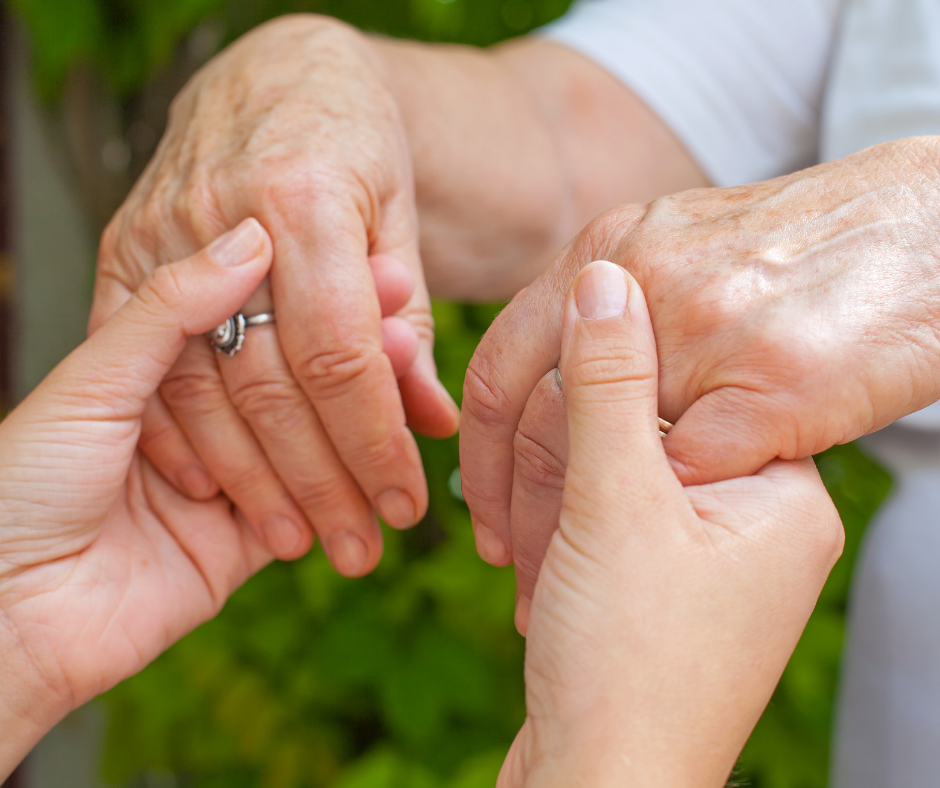
Parkinson’s Disease currently affects more than 1 million people in the United States, and an estimated 60,000 people are diagnosed with it each year.
It is a neurodegenerative disorder that impacts balance, coordination, and mobility and can cause uncontrollable tremors and early onset dementia.
Another characteristic of Parkinson’s is that it is often slow to progress after diagnosis.
This can provide a slight leg-up to those looking to plan ahead for the care of their loved one once Parkinson’s symptoms become challenging.
Blue Water Homecare offers a dedicated Parksinon’s Program to help you when you decide you need assistance with at-home care. We can coordinate things like bathing and grooming, driving to appointments, sitter services, or scheduling medication reminders.
“We are here for you when you feel that you need assistance in managing your loved one’s Parkinson’s care,” says Blue Water Homecare Founder and COO Jennifer Prescott, RN MSN, CDP, who also serves as Vice President of outreach for the Capital Area Parkison’s Society (CAPS). “It can be overwhelming, both mentally and physically, to ensure that their needs are met, along with your own, on top of running your household and tending to other family members, all at the same time.”
In addition to seeking outside support for their care when you need it, Blue Water Homecare recommends these five tips for looking after someone with Parkinson’s:
Educate yourself and prepare.
Once a loved one receives a Parkinson’s diagnosis, do your best to become familiar with the symptoms and challenges that may lie ahead. As it is frequently a slow-to-develop condition, you can plan ahead for things like clearing pathways to help with navigation and mobility around your home and establishing a safe space for them to ride out intense tremors.
Create a support system.
Make sure to have an established set of friends, other family members, or neighbors you can call on anytime you need help–whether for emergencies or daily chores like running to the grocery store or picking up medications.
Also consider joining a local Parkinson’s support group so that you can share experiences with others maneuvering through these same hurdles. A safe outlet in which to exchange tips, ideas, or even fears and anxieties can be very helpful and comforting to caregivers. Check out support groups available at CAPS or the Parkinson’s Foundation.
Hire help for your home.
If you are dedicated to being the sole caregiver for your loved one, and you have the resources, make sure to enlist help for the other regular to-do items around your home, like taking care of yard work and repairs, doing housework or cleaning, and preparing meals.
Take care of yourself.
You will no doubt have a great deal on your plate as a caregiver of a loved one with Parkinson’s, potentially leading to bouts of anxiety, exhaustion, and depression. Make sure to schedule time for yourself to rest and rejuvenate. Take walks, pre-record and watch favorite television shows, meet up with friends, read a book, or work in your garden–these can prove to be welcome distractions for a few precious hours.
Also ensure that you are eating a well-balanced diet and getting exercise to keep yourself healthy and strong in order to fulfill your caregiver role.
Be flexible.
Although Parksinon’s can be slow to progress, it can also be unpredictable. Know that the capabilities your loved one may have had one day, may no longer exist the next. For as much time as you take to plan ahead for your loved one’s care, there will be hiccups along the way. Take each day in stride and practice gratitude for the positive and memorable moments you continue to share on your journey together.
Please contact Blue Water Homecare here for a complimentary consultation and to learn more about how we can help your loved one continue to live safely, and comfortably, at home. And don’t forget to follow us on Facebook and Instagram.